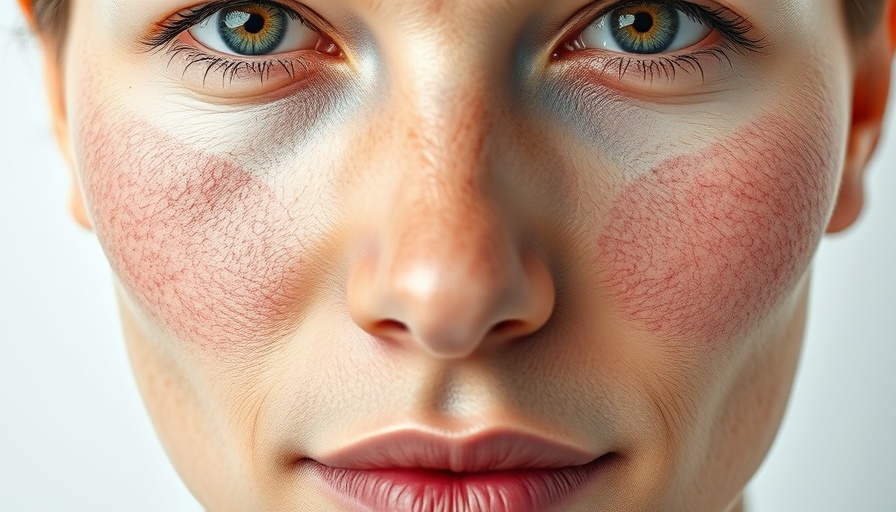
Understanding the Causes of Skin Discoloration
Skin discoloration is a common concern for many, affecting individuals across various demographics. This often arises from the overproduction of melanin, the pigment responsible for our skin color. Various factors contribute to this excess melanin, including genetics, sun exposure, hormonal changes, and skin injuries. For many, these patches and marks can be sources of frustration as they often take considerable time to fade, especially in individuals with deeper skin tones.
The Four Types of Skin Discoloration Explained
Understanding the specific types of discoloration can empower you to take effective steps toward treatment.
1. Melasma: Often marked by large brown or grayish patches, melasma frequently occurs on the forehead, cheeks, and around the mouth. It's most common in women, particularly during pregnancy or hormonal therapy. The misconception that intense exfoliation can help fade these spots often backfires, as it can irritate the skin further, leading to chronic inflammation and prolonged discoloration. Instead, gentle, calming treatments can be more effective.
2. Post-Inflammatory Hyperpigmentation (PIH): These are often small dark spots left in the wake of acne, cuts, or bug bites. Preventing breakouts is critical, as reiterated by skincare experts. Individuals should avoid picking at blemishes, which can exacerbate discoloration and create lasting scars. Working with a specialist to tailor a preventive action plan can effectively reduce the likelihood of PIH formation.
3. Sun Damage: Excessive sun exposure can result in uneven pigmentation and dark spots. The sun's harmful UV rays can speed up melanin production, leading not only to discoloration but also to more severe skin conditions. This underscores the importance of daily sunscreen application, regardless of the season.
4. Age-related Discoloration: As we age, skin naturally becomes thinner and less able to regenerate, which can lead to noticeable pigmentation changes. Embracing a proactive skincare regimen that includes antioxidants can help stave off these unwanted changes.
Why Skin Discoloration Matters
Beyond mere aesthetics, skin discoloration can impact your mental well-being and self-esteem. For many, clear, even-toned skin is tied to feelings of confidence and beauty. Understanding the causes and solutions can help others feel empowered on their skincare journey. Moreover, this awareness promotes discussions about skin health and its complexities, reinforcing that we’re not alone in our concerns.
Future Predictions and Trends in Skincare
The skincare industry is rapidly evolving, with a steady stream of new research underscoring the importance of ingredients that not only address discoloration but also promote overall skin health. Expect to see an increase in products featuring natural remedies and ingredients such as niacinamide, licorice root extract, and vitamin C—each known for their effectiveness in brightening skin and fading dark spots.
Practical Tips for Managing Skin Discoloration
- Daily Sun Protection: Utilize a broad-spectrum sunscreen with at least SPF 30 daily.
- Gentle Exfoliation: Consider mild exfoliants to avoid irritating the skin.
- Consultation with Professionals: A dermatologist can help create a personalized regimen tailored to your skin type.
- Incorporate Antioxidants: Introduce serums with vitamin C into your routine for a brightening effect.
- Stay Informed: Keep up with the latest research on skincare to make educated choices.
Common Misconceptions Surrounding Skin Discoloration
Many believe that all skin discolorations can be treated similarly, which is not the case. Each type requires a specific approach tailored to address its unique causes. Some may think the quicker the approach, the better the results, but patience and consistent care are key for effective outcomes.
Conclusion: Embrace Your Skin Journey
Understanding skin discoloration is not just about the surface; it's about fostering a deeper appreciation for our individual skin health journeys. Take the time to care for your skin holistically and consider seeking professional guidance. As always, ensure you are protecting yourself from sun damage and embracing practices that suit your skin's needs. Loving the skin you’re in means understanding it, and that’s where the journey begins.
 Add Row
Add Row  Add
Add 




Write A Comment